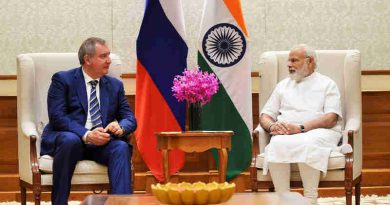Russian Attack on Ukraine Affecting Labour Markets: ILO

The Russian aggression against Ukraine is affecting labour markets in Ukraine and beyond, as detailed in a recent ILO brief.
Multiple global crises are causing a marked deterioration in the global labour market recovery, with increasing inequalities within and between countries, according to a new report from the International Labour Organization (ILO).
The 9th edition of the ILO Monitor on the World of Work , finds that after significant gains during the last quarter of 2021, the number of hours worked globally dropped in the first quarter of 2022, to 3.8 per cent below the pre-crisis benchmark (fourth quarter of 2019). This is equivalent to a deficit of 112 million full-time jobs.
This represents a significant downgrading of figures published by the ILO in January 2022. Multiple new and interconnected global crises, including inflation (especially in energy and food prices), financial turbulence, potential debt distress, and global supply chain disruption – exacerbated by war in Ukraine – means there is a growing risk of a further deterioration in hours worked in 2022, as well as a broader impact on global labour markets in the months to come.
The Russian aggression against Ukraine is already affecting labour markets in Ukraine and beyond, as detailed in a recent ILO brief.
The ILO report also finds that a great and growing divergence between richer and poorer economies continues to characterize the recovery. While high-income countries experienced a recovery in hours worked, low- and lower-middle-income economies suffered setbacks in the first quarter of the year with a 3.6 and 5.7 per cent gap respectively when compared to the pre-crisis benchmark. These diverging trends are likely to worsen in the second quarter of 2022.
In some developing countries, governments are increasingly constrained by the lack of fiscal space and debt sustainability challenges, while enterprises face economic and financial uncertainties and workers continue to be left without sufficient access to social protection.
More than two years after the start of the pandemic, many in the world of work are still suffering from the impact on labour markets.




